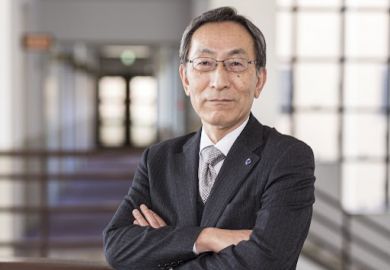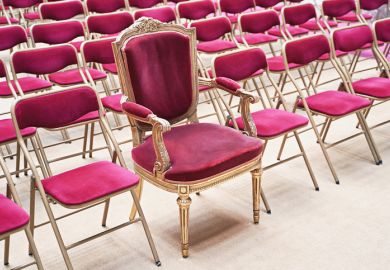The furore over vetoed humanities grants looks set to disadvantage hundreds of Australian researchers, stalling the distribution of about A$300 million (£167 million) in funding as authorities grapple with a requirement for a new “national interest” test.
But the delay defers the pain for education minister Dan Tehan, who faces the politically uncomfortable decision of whether to approve half or more of the 11 grants vetoed by his predecessor, Simon Birmingham.
Many of the rejected proposals have been resubmitted for funding through the Discovery projects, Discovery Indigenous and Discovery Early Career Researcher award schemes. Last year, more than 800 projects shared A$304 million under the three schemes, and announcements of this year’s successful applicants are due before January.
The Australian Research Council has announced that next year’s applications for two of the schemes will be delayed, apparently so that it can accommodate the new national interest test that Mr Tehan announced for grants in October. It now appears that the test will also affect current applications.
According to an email from a head of school at a large metropolitan university, the ARC has indicated that announcements of this year’s grants have been delayed “whilst consideration is given to ‘national interest tests’ required for funded grants”.
“This may well affect decisions regarding contract extensions for ARC-funded researchers,” adds the email, whose author confirmed to Times Higher Education that current grant allocations were expected to be deferred.
The ARC would not confirm or deny delays to this year’s announcements. Researchers said that it should immediately clarify the situation. “As a sessional with no employment certainty generally, the potential lack of disclosure makes life more difficult moving into Christmas,” one said.
It is not clear why current applications should be delayed by the test, which Mr Tehan said would apply only to “future grant rounds that are yet to open”.
Critics have said that the test is superfluous and will enable ministers to reject research on subjective political grounds dressed up as “national interest”.
The test will also add to an already onerous application process that can take months, even for resubmissions. Researchers want the application process simplified, not expanded.
One said that the A$4 million that Mr Birmingham had saved by rejecting the 11 grants would not cover the cost of the hours squandered by academics and bureaucrats on “this pointless revision of the ARC application process”.
Media professors Elizabeth Lester and Brett Hutchins, whose project “Greening media sport” was vetoed by Mr Birmingham, confirmed that they had reapplied for funding in the current round. “We did a lot of work on the application before resubmitting, including on benefit,” Professor Lester said.
Australian National University art historian Robert Wellington has also resubmitted his project “Multiple lives: Louis XIV prints, medals and global exchange”. Like Professors Lester and Hutchins, he reapplied without knowing that his 2017 proposal had been recommended by the ARC but vetoed by Mr Birmingham.
Others to reapply include Macquarie University musicologist Hollis Taylor and University of Sydney art historian Roger Benjamin, whose vetoed project “Post orientalist arts of the Straits of Gibraltar” has been publicly ridiculed by Mr Birmingham and Mr Tehan. “We’re waiting to see,” Professor Benjamin told Times Higher Education.
He said that the proponents of the vetoed grants were hopeful that their earlier endorsement by the ARC would get them over the line. “But [we are] fearful that they might be slapped down again by the new minister to show solidarity with his erstwhile colleague,” he added.




